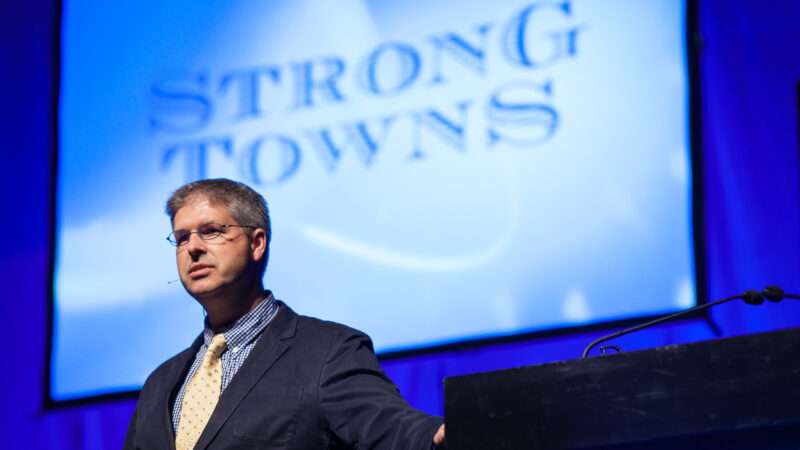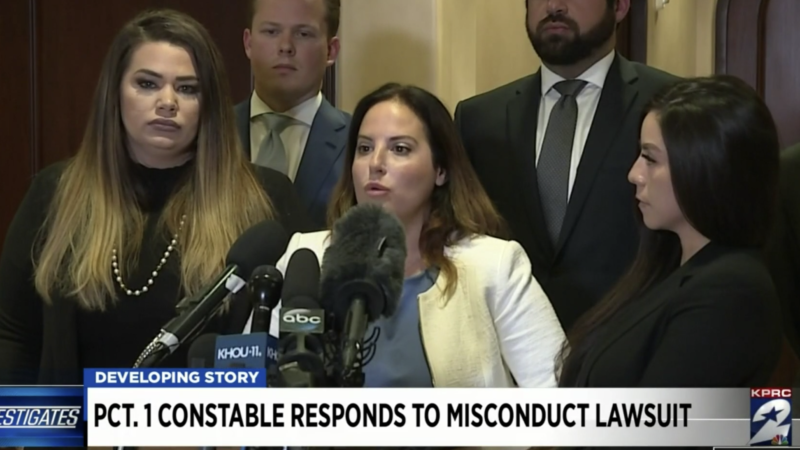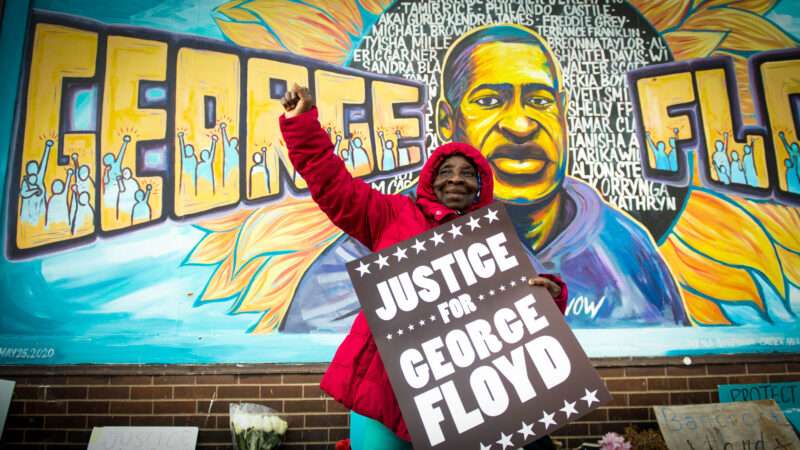
The head of an urban policy nonprofit is suing Minnesota’s engineering licensing board after they threatened him with fines and other sanctions for calling himself an engineer in speeches and articles while having a temporarily expired engineering license.
Charles Marohn, a licensed civil engineer since 2000 and president of the advocacy group Strong Towns, argues that the board is violating his First Amendment rights by policing his description of himself as a professional engineer in connection to his policy advocacy.
The sanctions he’s being threatened with, he contends, are retaliation against Strong Towns’ activism, which is critical of spending more money on large infrastructure projects typically beloved by professional engineers.
The state’s licensing board “is making findings that I have been dishonest and misrepresented myself to the public, that I made false statements. These things are not only unfounded, they are just deeply, deeply damaging,” says Marohn. “I’m not practicing engineering. This board has no authority to regulate what my speech is and what I’m out saying.”
Marohn’s problems began in February 2020. That’s when a South Dakota engineer, David D. Dixon, submitted a complaint to the Minnesota Board of Architecture, Engineering, Land Surveying, Landscape Architecture, Geoscience, and Interior Design (AELSLAGID) after reading an article authored by Marohn that was critical of traffic engineers on Strong Towns’ website.
Marohn’s website biography said that he was a “Professional Engineer (PE) licensed in the state of Minnesota.” According to Dixon’s complaint, he searched Marohn’s name on the AELSLAGID website only to find that his license had expired in June 2018.
“Based on that, I sought to determine whether this reference on [Strong Towns] was an isolated reference, perhaps an oversight, or part of a deliberate effort to mislead the public,” wrote Dixon in his complaint, which notes that Marohn is also described as an engineer in “about the author” page of his February 2020 book and in materials for a 2019 conference at which Marohn was a speaker.
“Mr. Marohn talks about being a policy expert, the type that reads law and ordinance. It is not reasonable to assume that Mr. Marohn was not aware that use of the term Professional Engineer, PE, or other similar representations while not licensed, is a violation of law,” Dixon says in his complaint. “I urge the board to investigate as it sees fit, and to send a clear message that frauds of this sort are not tolerated.”
Marohn received notice of this complaint from AELSLAGID in July 2020, over a month after he’d already renewed his expired license.
Minnesota engineering licenses expire on June 30 of even-numbered years. Licensees are required to proactively renew them.
AELSLAGID sends out courtesy notices reminding people of their need to renew their licenses. Marohn has been a licensed engineer in the state since 2000. In 2016, however, he moved without informing the board, and thus missed the biennial renewal reminder that was sent to his old address in 2018.
Then in June 2020, a Strong Towns co-worker brought it to Marohn’s attention that his license had lapsed. Screenshots of Slack messages that Marohn submitted to AELSLAGID show him reacting with surprise at the news. He renewed it the same day and also paid a late renewal fee of $120. His lawsuit notes that he’d also completed the required continuing education hours during the time his license was expired.
“It’s kind of silly. I don’t go out and practice as an engineer. I’m a writer. I do public speaking, and I do writing. I do advocacy work. I don’t sign plans; I don’t do construction drawings,” Marohn told Reason in July 2020. He said at the time that he didn’t expect the board to sanction him over an obvious bad-faith complaint.
That prediction has turned out to be wrong. In November 2020, AELSLAGID informed Marohn that their investigation had determined that disciplinary action was warranted.
Specifically, the board demanded he pay a $1,500 fine and sign an order admitting he’d violated Minnesota law by using the title of “professional engineer” in his writings and speeches while his license was expired. They also wanted him to admit he’d lied to AELSLAGID when filling out his license renewal application, part of which requires the applicant to certify they haven’t improperly represented themselves as a licensed professional.
Marohn objected to the idea that he’d engaged in any willful deception. In a written response to AELSLAGID, he also said that under his reading of Minnesota law, the restrictions on the use of the title “professional engineer” only applied in circumstances where people were actually trying to practice engineering.
He thus declined to sign off on the board’s particular sanctions.
That led to a March virtual hearing with AELSLAGID’s five-member Complaint Committee. Here too, Marohn says that the primary concerns of the board were about his use of the term engineer in connection to his advocacy work.
One member of the board, he says, expressed concern that his description of himself as an engineer in talks he gave at Google, The American Conservative, and TEDx might make people more likely to listen to his ideas, thus endangering public health and safety.
That notion “is ridiculous because it’s not like I was any less qualified during the gap in my licensure,” says Marohn. “I was just talking; I’m giving a speech.”
Following the hearing—and in an effort to put the whole thing behind him—Marohn told AELSLAGID that he’d agree to a $500 civil fine and would sign a “stipulated order” admitting that he called himself a professional engineer while his license had lapsed.
In exchange, he wanted the board to acknowledge in writing that he’d renewed his license before being made aware of any complaint against him and that they drop their accusation that he’d made “untruthful” and “false” statements.
In April, AELSLAGID’s Complaint Committee declined that settlement. So last week, Marohn sued AELSLAGID in the U.S. District Court for the District of Minnesota arguing the board’s sanctions against him violate the First Amendment’s Free Speech protections.
“The board’s enforcement against [Marohn] raises some serious First Amendment concerns,” says Sam Gedge, an attorney at the Institute for Justice.
The government does have the ability to restrict unlicensed people referring to themselves as professional engineers to prevent fraud, Gedge says. But that would only apply to a very narrow set of circumstances like commercial advertising.
“The board is concerned that this gentleman referred to himself as a professional engineer in books, and speeches and communications like that. In that context, the government has no business policing the truth or falsity of speech,” he tells Reason.
The Institute for Justice has litigated similar cases before. In 2017, it sued Oregon’s engineering board after it fined Beaverton man Mats Järlström for referring to himself as an engineer in letters to the board, despite not having a state engineering license.
“The government licensing boards are the new censors in America. They’re aggressive, and time and time again it becomes clear they just don’t believe the First Amendment applies to them,” he says, adding that AELSLAGID “seems to be in need of suing.”
from Latest – Reason.com https://ift.tt/2RCNBqR
via IFTTT




